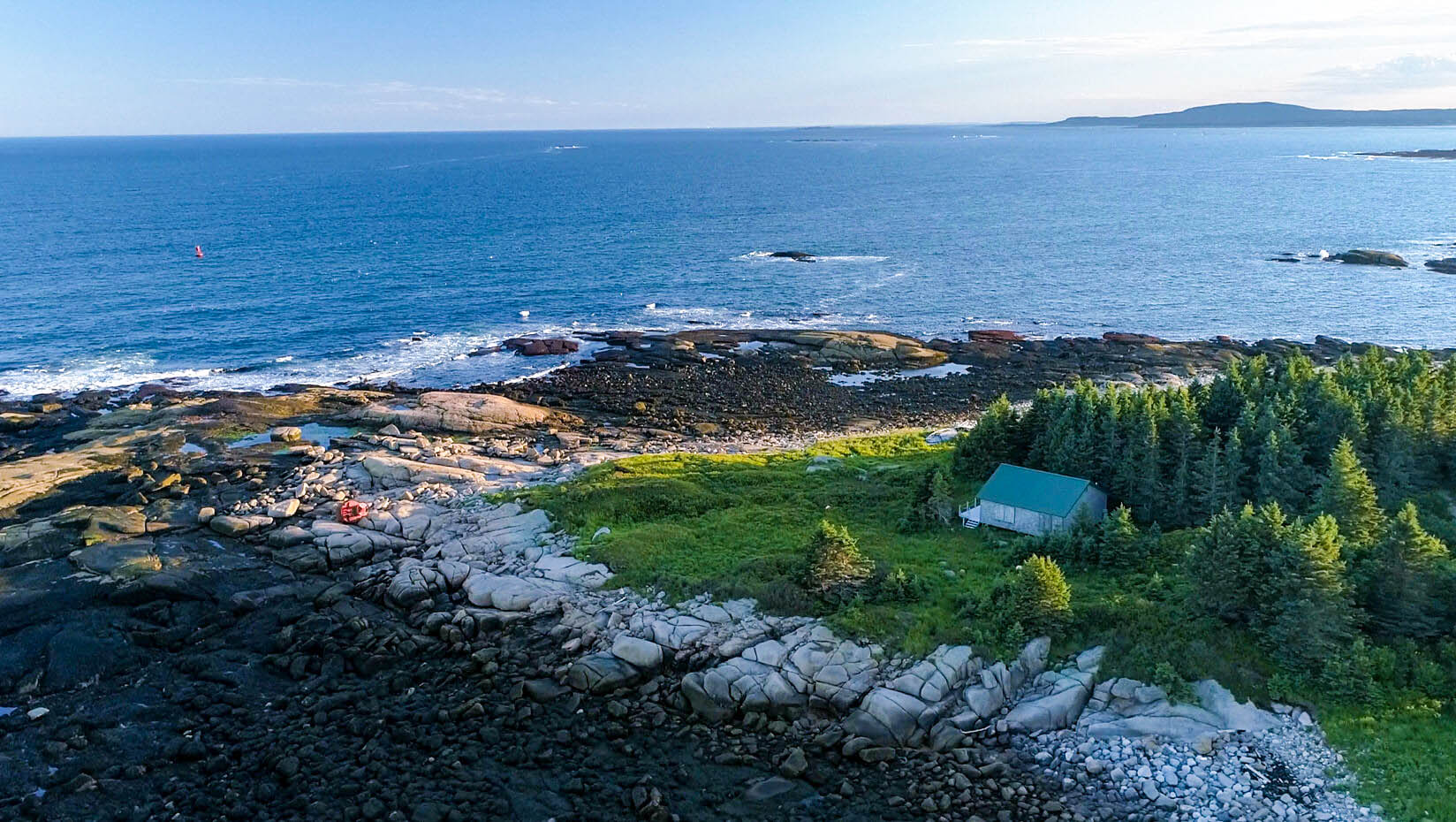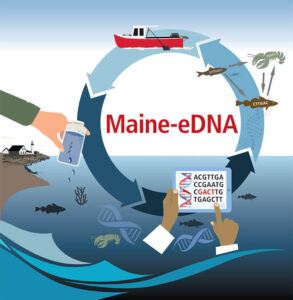
$20 million grant awarded for Maine Environmental DNA initiative to support coastal ecosystems
 A $20 million grant from the National Science Foundation EPSCoR program will fund a five-year initiative that aims to revolutionize environmental monitoring, ecological understanding and sustainability of coastal ecosystems.
A $20 million grant from the National Science Foundation EPSCoR program will fund a five-year initiative that aims to revolutionize environmental monitoring, ecological understanding and sustainability of coastal ecosystems.
The University of Maine is partnering with Bigelow Laboratory for Ocean Sciences and other collaborators in education, government agencies, citizen’s groups and local industry statewide.
“The Maine Environmental DNA (Maine-eDNA) initiative represents a multi-institutional partnership that will position Maine as a national leader in the understanding and sustainable use of coastal ecosystems, and in addressing the statewide workforce needs in critically important areas, including biotechnology, ecology, environmental and data sciences,” says principal investigator Kody Varahramyan, UMaine vice president for research and dean of the graduate school.
The Maine eDNA program will continue statewide, multi-institutional marine-related research following the completion of the Sustainable Ecological Aquaculture Network (SEANET) program, the NSF EPSCoR project awarded in 2014. As noted in the newly released University of Maine System “Research and Development Plan,” Maine EPSCoR has a critical role in improving R&D infrastructure and capacity statewide.
“Keeping Maine’s coastal ecosystem healthy is essential to preserving this precious natural resource that sustains thousands of Maine jobs,” according to U.S. Sens. Susan Collins and Angus King in a joint statement. “This investment will advance the University of Maine’s work, in partnership with Bigelow Laboratory, to better understand our coastal ecosystem and find solutions to offset the impacts of changing ocean conditions on our communities, marine life and economy.”
Environmental DNA (eDNA) is like a genetic fingerprint of a marine ecosystem. Organisms leave traces of DNA, the universal code for life, wherever they go — in the water, air or soil. These traces can be collected, identified and linked back to those species, much like evidence at a crime scene.
The resulting data can show where, when and how species and groups of organisms have interacted with each other and their coastal habitats.
Collected eDNA can be combined into larger and more comprehensive data sets that scientists can reanalyze to answer ever-evolving questions about how coastal systems work — and what makes them resilient or susceptible to change.
“eDNA can change the landscape of how we gather data on coastal systems. It is a revolutionary way to get a snapshot look at organisms in their natural environments, from lakes to the ocean, and microbes to whales,” says Michael Kinnison, UMaine science lead for the Maine-eDNA program and professor of evolutionary applications. “There’s never been anything like it for crowdsourcing our understanding of coastal biodiversity.”
The state’s fisheries and other resources in the Gulf of Maine have faced significant challenges due to harvesting, dams and climate change, according to Kinnison.
Scientists and policymakers need to monitor these systems as rapidly as they are changing to manage them sustainably.
“In order to protect and sustain our marine ecosystems, we must first better understand them. This $20 million award from the National Science Foundation recognizes that University of Maine and Bigelow Laboratory researchers are leaders in this field, and offers the opportunity for Maine to spearhead a revolutionary understanding of coastal ecology. It is heartening to see national programs such as NSF partner with on-the-ground experts to support their vision,” says U.S. Rep. Chellie Pingree.
The new program will focus on two pressing issues for the coast of Maine: sustainable fisheries and harmful species.
Sustainable fisheries research includes studying the outcomes of large-scale restoration efforts and unraveling the complex early life cycles of economically important species like lobster.
Work on harmful species includes developing early warning systems for toxic algal blooms and forecasting the spread and impacts of invasive species.
“Maine’s natural resources are the economic engine for our state. This grant will fund research at the University of Maine and Bigelow Lab on environmental protection in Maine, helping us better understand coastal ecosystems and how to protect our fishing, lobstering, and coastal industries. This research will provide the information to innovate and develop our industries and lead Maine to a more sustainable future,” says Congressman Jared Golden.
The program also will advance the next generation of environmental science by combining the genetic data across these projects, and other sampling efforts, to generate massive genetic databases that researchers, policymakers and industry can access to address coastwide challenges for decades to come.
“We are excited to use our understanding of microscopic ocean life to develop this new tool for Maine’s aquaculture, fishing and biotechnology industries,” says Deborah Bronk, president and CEO of Bigelow Laboratory for Ocean Sciences. “eDNA can provide powerful new insights into our coastal ecosystems and the amazing diversity of life they support.”
Citizen scientists, from seafood growers to schoolchildren, will have opportunities to contribute in multiple ways, such as collecting water samples, monitoring local water sources with handheld eDNA detectors and providing vital input for future initiatives.
“Maine needs a robust STEM-literate workforce to secure the future of Maine,” says UMaine President Joan Ferrini-Mundy. “By leveraging this important funding from the National Science Foundation at the state’s public research university, in partnership with Bigelow Laboratory, Maine EPSCoR is able to create educational opportunities and internships in the context of significant research areas for Maine. This will help ensure that students persist in STEM-related fields, grow Maine’s workforce and solve problems.”
More information is on the Maine-eDNA website.
RII Track-1: Molecule to Ecosystem: Environmental DNA as a Nexus of Coastal Ecosystem Sustainability for Maine (Maine-eDNA) is supported by National Science Foundation award #OIA-1849227 to Maine EPSCoR at the University of Maine.
Contact: Christel Peters, 207.581.3571, christel.peters@maine.edu
